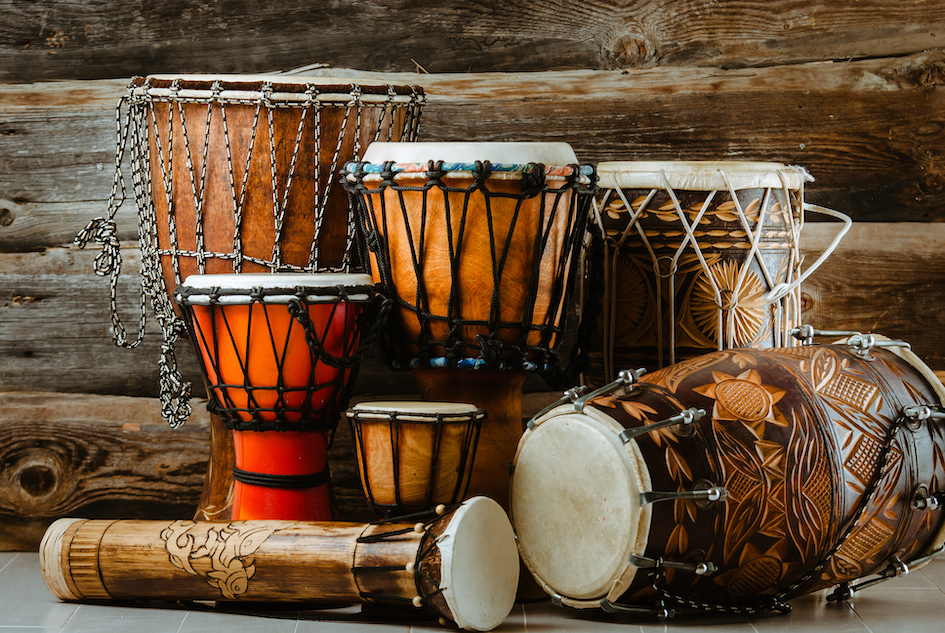
Music is a universal language. It is at the heart of many cultures worldwide. Engaging with musical styles from around the world and listening to the different voices, rhythms and instrument combinations immerse students in a world outside their own and allows imaginations to run wild. Ethnomusicology is the study of non-western music and musical traditions. Engaging with it has never been easier, thanks to digital technology. Ethnomusicology is a gateway to the world and enriches students’ education immensely. Through using digital technology to study ethnomusicology, students can improve their health, wellbeing, cross-cultural understanding and develop a greater understanding of the world which they live in.
Research by Harvard neurology professor Dr Andrew Budson has revealed that actively listening or playing music is the only activity that has been proven to use every part of the brain. According to researchers at John Hopkins University, when every part of the brain is engaged, it provides “a total brain workout”. It’s the equivalent of a full-body workout. When people engage with music, endorphins are released, and moods are elevated. Music’s endorphins releasing abilities have resulted in numerous studies revealing that active engagement with music helps reduce symptoms of anxiety and depression and improves mindfulness.
In addition to improving mental health and wellbeing, music plays an important role in cognitive development. A two-year study conducted by the Brain and Creativity Institute (BCI) concluded that playing or listening to music improves memory, verbal communication skills, problem-solving skills, interpersonal skills, creativity and neuroplasticity. Developing these skills by engaging with ethnomusicology allows students to become independent critical thinkers and understand the world they live in.
Ethnomusicology also improves classroom engagement and understanding. A study by the Australian Catholic University found that music can improve classroom engagement amongst neurotypical and neurodiverse children. Through music, teachers can better understand their students’ needs. This is because music is a form of self-expression.
In addition to cognitive development, ethnomusicology in the classroom also fosters personal development. By introducing students to music from their own culture and other cultures, students become more comfortable with their own and others’ cultural identity.
When students engage with music and with others’ interpretations of sound, it broadens their perspectives. In addition, when students listen to culturally diverse music, it can open up dialogue in the classroom and allow students to see that they have more in common than they think, and they bond.
Ethnomusicology is a vessel that preserves human heritage. Songs oral histories that capture feelings, social-economic issues, and cultural issues are immortalised and capture important moments in history. For many cultures around the world, music is at the heart of gatherings, festivals, and belief systems. Using hands-on digital technology to educate students about ethnomusicology encourages students to think critically about the world they live in. Through critical thinking, students learn the values of tolerance, empathy and understanding.
Music can be a celebration of diversity and reveals what can be created when different cultures come together. Jazz, hip hop and techno, among other musical styles, are the result of cultures converging and creating together.
Immersing students in the world of ethnomusicology has never been easier, thanks to the advancement of technology. Digital technology developments mean that students can listen to music from around the world and create music using instruments from around the world.
Sound Infusion by Cultural Infusion is a multi-award winning music production software that contains music samples from more than 100 countries and includes more than 300 instruments. Sound Infusion empowers students and puts them in charge of their learning. Its extensive database allows for students to be creative and roam free. The platform effortlessly combines history, geography, language and music through engaging with it. By participating in a Sound Infusion experience, students will learn about themselves and their interests and passions.
Education has the power to change the world, and education through ethnomusicology can revolutionise classroom learning. In a diverse and ever-changing world, the need for cross-cultural understanding has never been more important. Ethnomusicology education is a catalyst for celebrating diversity and knowledge expansion.
To enrich your students’ experience in the classroom and support their mental and physical well-being, sign up to trial Sound Infusion, a hands-on, student-centric and immersive approach to learning which fosters creative and critical thinking. New users can experiment with quality instrument samples from around the world for a month for free. Register now for a free trial of Sound Infusion.
Share this Post

